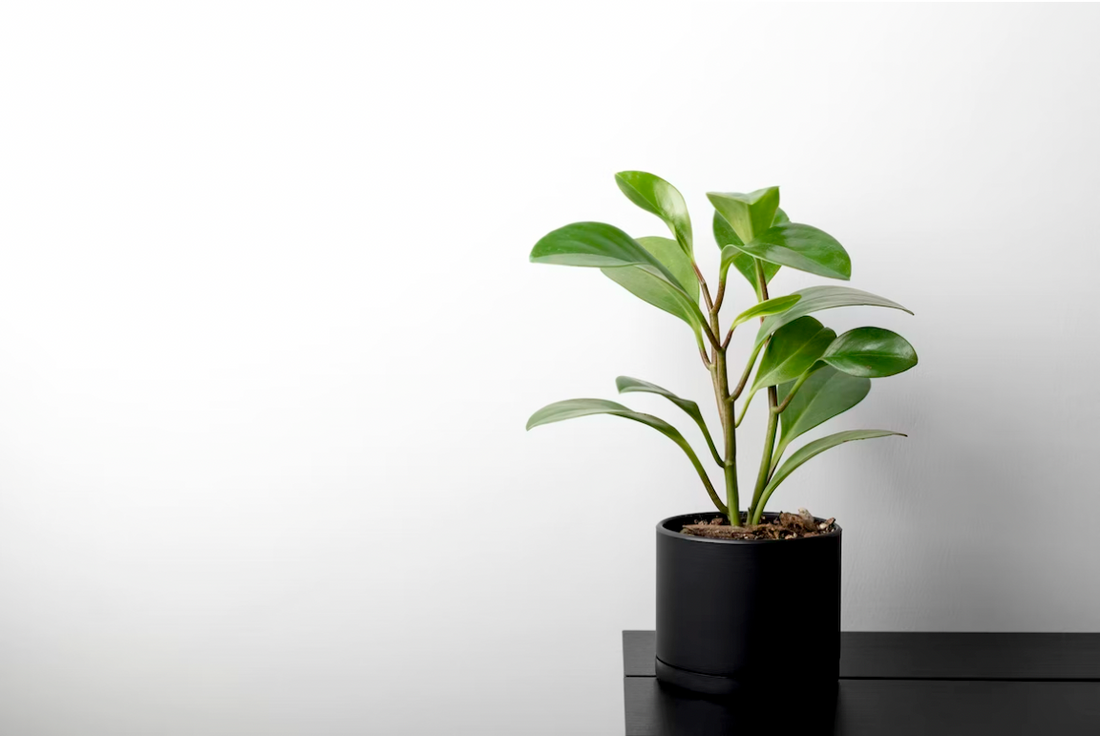
Indoor Plants Safe For Cats: Being The Best Plant Mom and Cat Mom
Share
Not all plants are equal, especially when it comes to the well-being of your cat. Certain plants can in fact be harmful for your cat, so we made sure to highlight the best indoor plants safe for your cats. Here you will find 4 indoor plants, safe for cats, many of which are low light and easy to maintain.
Peperomia Obtusifolia (Baby Rubberplant)- Easy to Maintain
This plant is otherwise known as the baby rubber plant, and it is safe for cats. It has very thick green leaves and they are able to produce small white flowers if you leave them in bright light. A lot of people find that this plant can thrive in indirect sunlight too, just make sure that you keep an eye on the leaves to ensure that they are not turning brown. This plant is a great alternative if you love spider plants, but want something with rounder, or softer leaves.
Orchids- Ideal for Bright Light Windowsills

Orchids are higher maintenance when compared to other houseplants, such as the polka dot plant or spider plant, but at the end of the day, they are truly stunning and one of the best pet-friendly plants you can buy on a budget. One thing to know about orchids is that they tend to arrive with fresh flowers, but they drop them around 3 months later. They do this so they can prepare for a full bloom the following year. This plant is safe for cats, and ideal for those who want the color of a polka dot plant, but with the care-free maintenance of a spider plant.
Cat Grass- the Best Indoor Plants Safe for Cats

This plant was made with your cat in mind. This plant is packed full of nutritional benefits for your cat and it's one of the best options out there if you want a plant safe for cats. This is a fantastic alternative if you don't have the direct sunlight required for a prayer plant or mosaic plant, not to mention that it can thrive in both indirect sunlight and direct sunlight. Cat grass is one of the best safe plants, especially for indoor cats, and the benefits include improved digestive, access to vitamins, and minerals, entertainment, and more!
Shop The Cat Ladies Cat Grass
Prayer Plant- A Great Alternative to Spider Plants

The prayer plant has striking stripes that run down the leaves. Just make sure that you put it in direct sunlight, or under a bright light. This plant is perfectly safe for cats, and it looks very similar to the purple waffle plant. If you have always wanted a mosaic plant, or nerve plant, but prefer bigger and wider leaves then this is a fantastic option. Just make sure that you mist the leaves, and that you also avoid putting it anywhere it may be exposed to indirect sunlight. This plant has high light requirements, but if you can provide this then you'll soon find that it is perfectly safe for cats, and it's easier to maintain than a friendship plant too.
Summary
Not all plants are safe for cats, so it's important to understand which plants you can have in your home with your furry friend. We highly recommend having cat grass in your home, especially if you have an indoor cat. Our organic cat grass is easy to grow, and not only is it safe for cats, its actually very beneficial for their health and well-being.
SHOP CAT GRASS
Indoor Plants Safe for Cats FAQ's
Are all indoor plants safe for cats?
No, not all indoor plants are safe for cats. Some common house plants can be toxic to cats if ingested, causing symptoms ranging from mild gastrointestinal upset to severe poisoning. It's important to choose pet-safe plants that are non-toxic to cats, such as air plants, cast iron plants, and cat grass, to ensure the safety of your furry friends.
How do I know if a plant is toxic to cats?
You can identify toxic plants by consulting pet-friendly plant guides or databases provided by reputable sources. Look for warning signs such as the presence of toxic compounds or irritants in the plant's leaves, stems, or flowers. When in doubt, opt for low-maintenance cat-safe plants like the cast iron plant or non-toxic flowering plants to minimize the risk of toxic plant ingestion.
What should I do if my cat ingests a potentially toxic plant?
If your cat ingests a toxic plant, it's crucial to act quickly. Contact your veterinarian or an animal poison control hotline for guidance and assistance. Monitor your cat for any signs of illness or poisoning, such as vomiting, diarrhea, lethargy, or difficulty breathing, and seek prompt veterinary care if necessary.